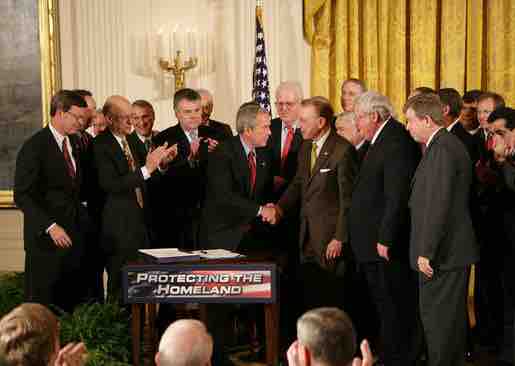Background
The concept of national security became an official guiding principle of foreign policy in the United States when U.S. President Harry S. Truman signed the National Security Act of 1947 on July 26, 1947.
Together with its 1949 amendment, this act stood as the precursor to the Department of Defense. It also established the National Security Council and the Central Intelligence Agency, while subordinating the military branches to the Secretary of Defense. The Act did not define national security. Its ambiguity made it a powerful phrase to invoke whenever issues threatened by other interests of the state came up for discussion and decision.
The realization that national security encompasses more than just military security was present early on. The U.S. National Security Act of 1947 was set up to advise the President on the integration of domestic, military and foreign policies relating to national security.
Rights and Freedoms Under National Security
The measures adopted to maintain national security in the face of threats to society has led to ongoing dialectic, particularly in liberal democracies, on the appropriate scale and role of authority in matters of civil and human rights.
Tension exists between preservation of rights and freedoms of individuals. Although national security measures are imposed to protect society as a whole, many such measures will restrict the rights and freedoms of all individuals in society. The concern is that where the exercise of national security laws is not subject to good governance, the rule of law, and strict checks and balances, national security may simply serve as a pretext for suppressing unfavorable political and social views. Taken to its logical conclusion, this view contends that measures like mass surveillance and censorship of mass media could ultimately lead to an Orwellian dystopia.
In the United States, the politically controversial USA Patriot Act and other government action has raised two main questions - to what extent should individual rights and freedoms be restricted and can the restriction of civil rights for the sake of national security be justified?

Bush signs USA PATRIOT Improvement and Reauthorization Act
United States President George W. Bush shakes hands with U.S. Senator Arlen Specter after signing H.R. 3199, the USA PATRIOT Improvement and Reauthorization Act of 2005 in the East Room of the White House